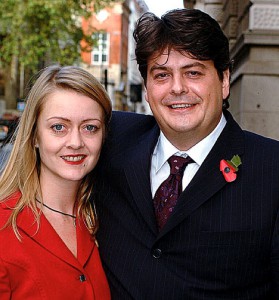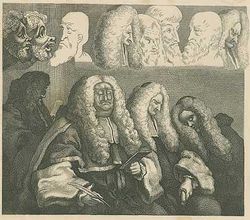David Shayler’s former partner reveals: How the bullying State crushed him
By ANNIE MACHON
Link to daily mail original — link to Daily Mail comments
Ten years ago this month former MI5 officer David Shayler made shocking revelations in this newspaper about how Britain’s spies were unable to deal with the growing threat of global terrorism.
He disclosed how MI5’s peculiar obsession with bureaucracy and secrecy prevented crucial information being used to stop bombings. And he told how insufficient agents and inept decision-making meant that terrorist groups were not properly monitored.
 None of his original disclosures was shown to be wrong. Indeed, in 2005 the bombings in London proved the whistleblower correct: MI5 was not equipped to counter terror on our streets.
None of his original disclosures was shown to be wrong. Indeed, in 2005 the bombings in London proved the whistleblower correct: MI5 was not equipped to counter terror on our streets.
The Government response to David’s disclosures was to place a gagging order on The Mail on Sunday and launch a six-year campaign to discredit and persecute Shayler. Alastair Campbell threatened to ‘send in the heavies’ and the whistleblower was forced into exile abroad, jailed twice and sued for damages; his friends and family were harassed and some arrested.
He faced a bleak, uncertain future and for many years he was under intense stress and pressure, often isolated and always under surveillance. I had a ringside seat for the ‘Get Shayler’ operation because I was an MI5 officer at the same time (1991−96) and also his girlfriend and co-campaigner until last year when I ended my relationship with a broken man.
I witnessed first-hand the extraordinary psychological, physical and emotional burden of being a whistleblower when the full power of the secret State is launched against you. A decade on the results of that pernicious campaign became clear when I heard that David had proclaimed himself as “The Messiah” and “God” and could predict the weather. I was saddened but not shocked. The story of David Shayler is not just one of a whistleblower but also an indictment of the lack of democracy and accountability in Britain.
I first met David when we were both working in F2, the counter-subversion section of MI5, where we were repeatedly reassured that MI5 had to work within the law. We were young and keen to help protect our country. I noticed David immediately, as he was very bright, and always asked the difficult questions. Over a period of a year we became friends, and then we fell in love.
In the run-up to the 1992 General Election we were involved in assessing any parliamentary candidate and potential MP. This meant that they all had their names cross-referenced with MI5’s database. If any candidates had a file, this was reviewed. We saw files on most of the top politicians of the past decade, from Tony Blair down, something that gave us concerns.
We then both moved to G Branch, the international counter-terrorist division, with David heading the Libyan section. It was here that he witnessed a catalogue of errors and crimes: the illegal phone-tapping of a prominent Guardian journalist, the failure of MI5 to prevent the bombing of the Israeli embassy in London in July 1994, which resulted in the wrongful conviction of two innocent Palestinians, and the attempted assassination of Colonel Gaddafi of Libya.
David raised this with his bosses at the time but they showed no interest. So we resigned from MI5 after deciding to go public to force an inquiry into the Gaddafi plot.
 After The Mail on Sunday revelations we decamped to France while David tried to get the Government to take his evidence and investigate MI5’s crimes, something, to this day, it has refused to do. Rather than addressing the problem, the Intelligence Services tried to shoot the messenger. They planted stories claiming David was a fantasist, overlooked for promotion, and was too junior to know what he was talking about. These are classic tactics used against whistleblowers and were wheeled out again when Dr David Kelly took his life.
After The Mail on Sunday revelations we decamped to France while David tried to get the Government to take his evidence and investigate MI5’s crimes, something, to this day, it has refused to do. Rather than addressing the problem, the Intelligence Services tried to shoot the messenger. They planted stories claiming David was a fantasist, overlooked for promotion, and was too junior to know what he was talking about. These are classic tactics used against whistleblowers and were wheeled out again when Dr David Kelly took his life.
We eventually returned home in 2000, by which time David felt isolated and angry. He began to distrust friends and thought that many of them might be reporting on him. He was convinced he was constantly followed and began to take photographs of people in the street. When the trial started, and with David effectively gagged, the jury had no choice but to convict.
He received a six-month sentence but the judgment exonerated him of placing agents’ lives at risk, conceding that he had spoken out in what he thought to be the public interest. David had blown the whistle with the best of motives. He had exposed heinous State crimes up to and including murder, yet he was the one in prison with his reputation in tatters. His release from jail saw a changed man. David was full of anger, frustration and bitterness and became depressed and withdrawn. He was drawn to the spiritual teachings of kabbalah, and became obsessed with the subject instead of focusing on what we should do to survive. Last summer, I went away for a weekend. When I returned, David had shaved off all his hair and his eyebrows as part of his spiritual evolution. He knew that I had always loved his long, thick hair, so it felt like a personal slap in the face. He was in trouble. He was quick to anger if anyone questioned him. He became obsessive about little details, espoused wacky theories and shunned his family and old friends. His paranoia also escalated. His experience of being hounded and vilified for a decade had left a deep persecution complex. Eventually the strain was too much and I ended the relationship.
It was difficult as we had shared so much over the 14 years we had been together, but it felt that we were no longer a team – David was focusing only on esoteric issues. Looking back, I am still proud of what we did. I believe that if you witness the crimes that we did, you have to take action. But the price for taking that stand against a bully State can be high. It is tragic to see an honourable and brave man crushed in this way. The British Establishment is ruthless in protecting its own interests rather than those of our country. Today David Shayler is living testimony to that.


